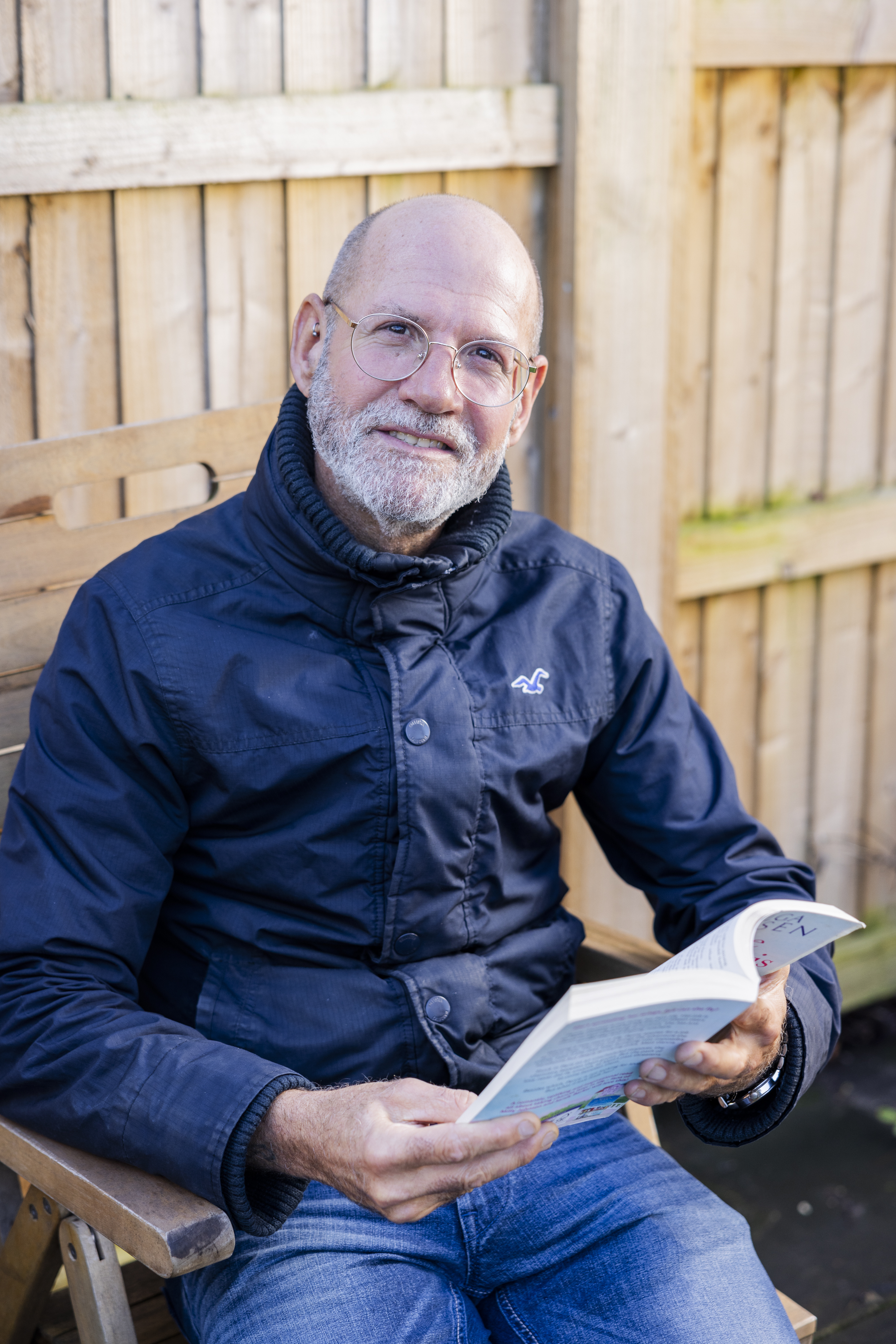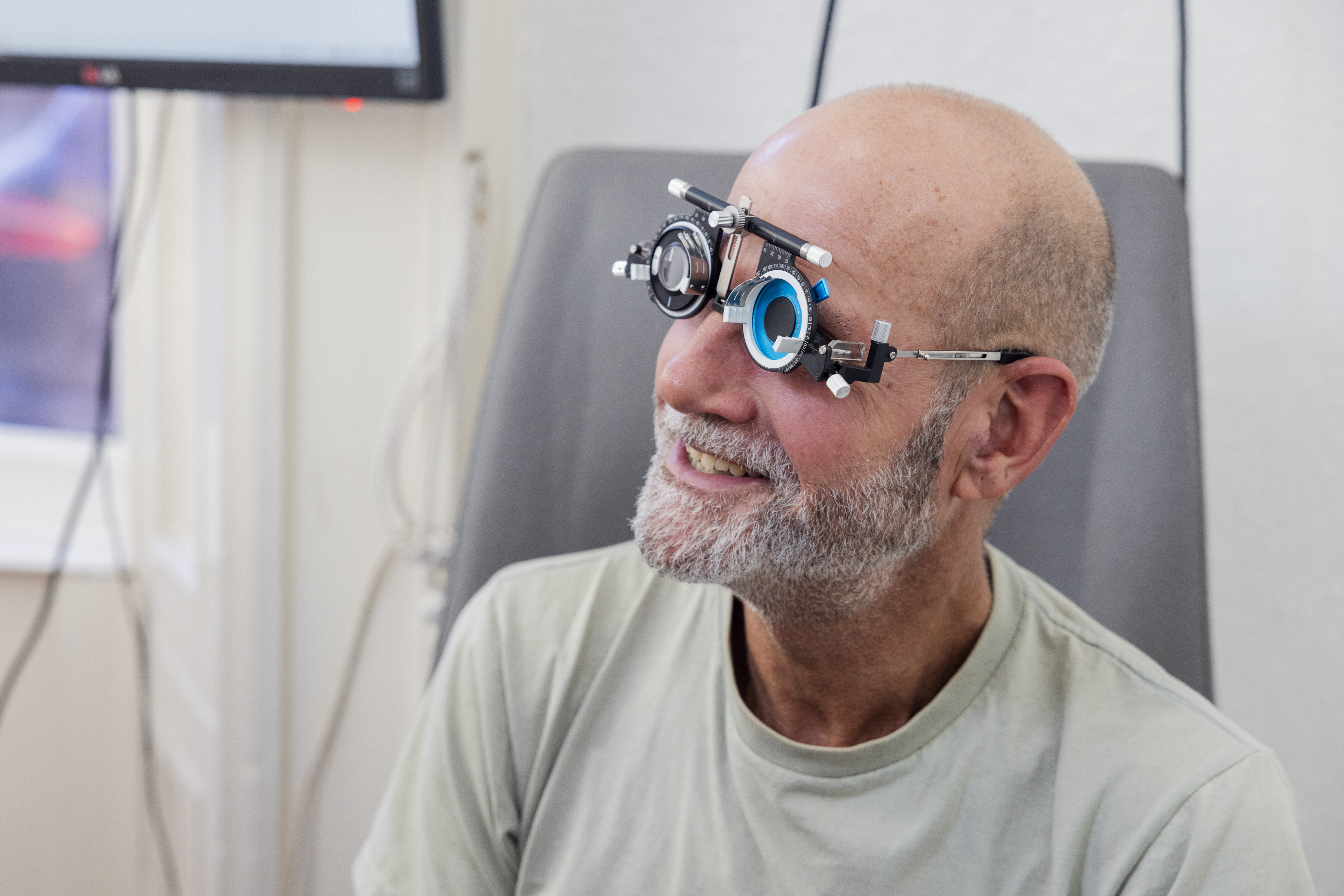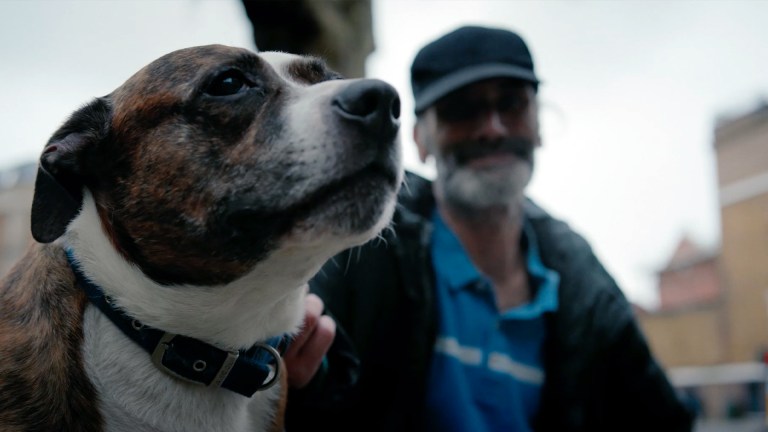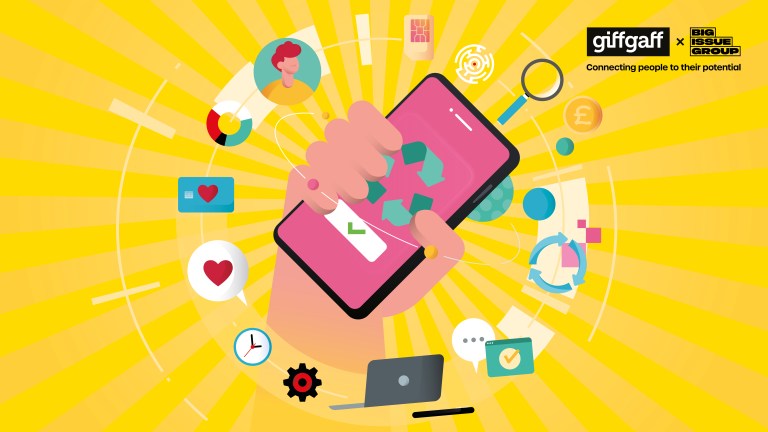“I couldn’t see anything,” says Bruce, remembering his time sleeping rough at Manchester Airport. “When you’re homeless your glasses get damaged or lost, you feel vulnerable, isolated. You bump into things.” Now volunteering at the Vision Care for Homeless People (VCHP) clinic at the Cornerstone Centre, near the Hulme area of Manchester, Bruce knows more than anyone the vital importance of accessible eye care for people experiencing homelessness.
The bustling centre, operated by Caritas Salford, hosts a weekly eye clinic run by VCHP, supported by Specsavers and other opticians who have donated equipment, their time and free glasses for those who need them.
It’s lunchtime, and the main hall is filled with people, around a hundred or so, sharing meals together, enjoying tomato soup and a roast dinner. The smell of roast beef hangs over the room, and there are cakes donated by a local store in the kitchen. Anyone experiencing or at risk of falling into homelessness can come here to access a meal, clothing and support. A Pride flag flies outside, and the centre’s garden (which doubles as an outdoor gym) grows fresh vegetables and herbs – little touches that make everyone feel welcome.
In a small but well-equipped examination room, lead optometrist Jane tests patients’ eyes using equipment donated by the local Specsavers store, as well as other organisations. Her patient is selecting his frames. “I’m a bit of a funky dude, I like to stand out a little bit more,” he says, trying a pair on. Laughing, Jane offers another pair. “How about these?” she says, before going on to discuss tinted lenses. He does, indeed, look a funky dude in his new specs.
For Bruce, this service proved transformative. Beyond providing him with much-needed glasses, the eye test revealed serious underlying conditions requiring specialist care.

“Jane picked up that I had a problem with my eyes and referred me to Manchester Royal Infirmary,” Bruce explains. He’s cheerful and matter-of-fact in the face of a condition that could seriously impact his quality of life. “They picked up something that could be really serious if I fell or hit my head. Now I know to be careful. Because of this place, I’ve been lucky. I’ve got eye drops now for the rest of my life, and I know exactly how to look after myself.” Had the problem not been discovered, Bruce’s eye health and vision would have been at risk. Now the progress of the condition has been slowed.










